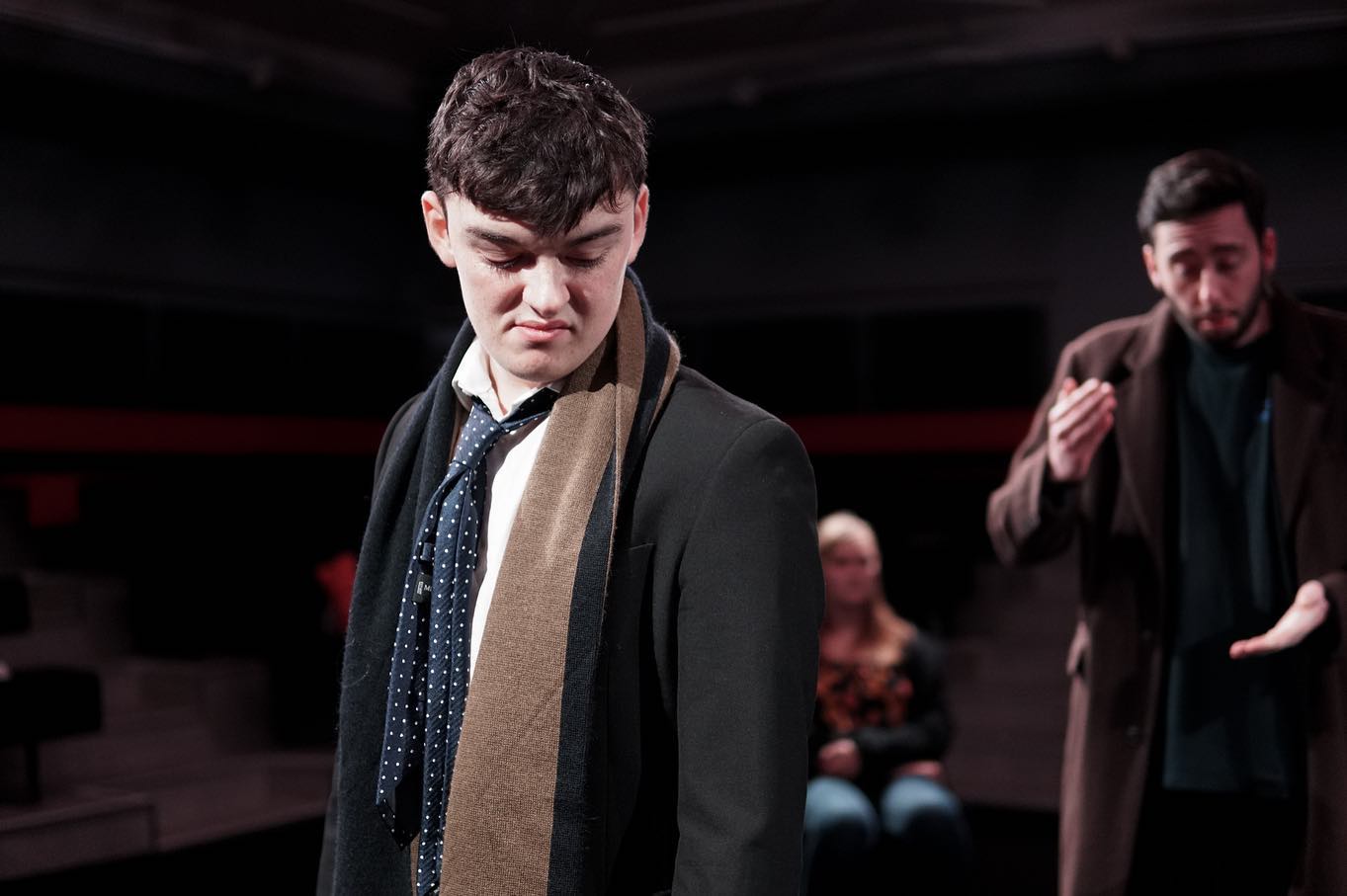Imagine finding yourself trapped in a lift with four strangers, all from completely different walks of life; what would you do? Would you wait it out in awkward silence, or would you pass the time in personal conversation? Elevate explores the latter idea, and dives into the hardships of individuals ignorant of each other’s struggles, and does so to varying levels of success.
Written by Alannah Marchewk and co-directed alongside Rebecca Gigliobianco, Elevate follows the lives of five strangers, who each narrate their back stories which brought them to be where they are now; a redundant broker, a widowed pensioner, a gay man struggling with his parents’ disapproval, an adopted woman searching for her true mother and a spiteful lady set on rejecting the modern progressions of society. The performances delivered by each of the actors was to a great standard, each of which getting to display the slight nuances and deeper emotions to their characters in their respective monologues. Most notable were Celia Bax’s performance as Estelle, who encaptured the frailty and intellect in her elderly character’s body language and dialogue, as well as Andrew Gregory as Laurence, whose subtlety in delivery carried with it a built up anger and longing for acceptance. The set design supported these actors in creating the setting of a trapped lift, with the audience sitting in a square border around the stage, enclosing the characters in a claustrophobic and inescapable surrounding. The actors further played into this by making sure they never stayed dormant in the delivery of their line, constantly moving around the stage to keep audience members engaged from all angles.
Despite a great set of performances, Elevate fails to fully pack the emotional punch it was looking for. Whilst some of the uncovered back stories provide a level of empathy which allows one to connect with these strangers, just as the other characters are doing, this is much more difficult with some individuals. Most significant in this case is the character Georgia, whose arc follows that of abject discourtesy towards the others throughout, into a sudden change of heart and complete switch of morality as the finale of the play unfolds. Within the interactions between the characters too, the tone is never fully consistent, and the relationships between certain people seem to break or unfold based on one or two lines. The vision and direction is very clear and in many moments shines through, but all too often, the more interesting topics that unify all these characters, such as their shaky family lives, are lost through the focus on the more personal character traits. A more concentrated subtext would have delivered the message of the play more clearly which, when following the framework of ‘strangers meet strangers’-type plot, must be significant to stand out above the rest.
Overall, Elevate provides a great cast of interesting characters, whose individual stories provide intrigue and in some cases, a strong sense of empathy. However, a lack of emotional weight on some of these stories and a sense of unifying direction which seems to be missing real vigour, leaves one with a less powerful message than could have been hoped for.

